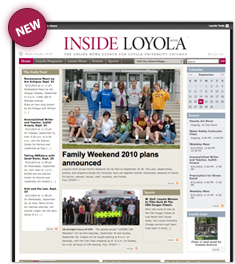- September 5, 2015
- 12:41 am
- Noah W. Sobe
CEPS 2015-2016 Course Offerings
CEPS is pleased to announce its 2015-2016 academic year course offerings.
FALL 2015
*ELPS 410 Sociology of Education (Phillippo) WTC, Wednesdays 4:15-6:45
*ELPS 420 Philosophy of Education (Shuffelton) WTC, Tuesdays 7:00-9:30
*ELPS 455 Comparative Education (Jules) WTC, Thursdays 4:15-6:45
*ELPS 520 Philosophy of Education Seminar: Justice and Education (Shuffelton) WTC, Tuesdays 4:15-6:45
Many educators express a commitment to “social justice,” but what exactly does social justice mean? What does justice entail; what does it imply about human subjectivity, about the good life for human beings and about a shared public, and what demands does justice place on educational institutions? Theories of justice have answered these questions differently, and this course will explore their points of agreement and disagreement, their insights and their blind spots, as well as the uses of their ideas in practice. The course focuses on contemporary theories of justice, starting with John Rawls’s seminal Theory of Justice and considering alternatives to Rawls’s liberal vision offered by communitarians, critical theorists (including feminist and critical race theorists), and capabilities theorists. Besides engaging with the past half century’s important philosophical writing on justice, students will connect theories of justice to particular injustices in contemporary school systems. As this is a seminar in philosophy of education, students will also refine their abilities to write conceptual analyses of issues in education policy.
*ELPS 540 History of Education Seminar: Globalization, Knowledge & Curriculum (Sobe) WTC, Mondays 4:15-6:45
The statement ““Knowledge is no longer an immobile solid, it has been liquefied. It is actively moving in all the currents of society itself” seems very much of our moment, however it was actually penned by the American pragmatist philosopher and educator John Dewey in 1899. In this course we will examine “knowledge” in relation to globalization. We will take a historical approach to studying the movements of knowledge, focusing specifically on what this has meant for school curricula. Topics to be covered include international curriculum history, colonialism and education, indigenous knowledge and contemporary discussions about the “knowledge economy”. What does it mean for knowledge to flow and to become globalized? How, in fact, should we think about “globalization” and what “the global” itself refers to? And what implications does this have for the future directions of schooling around the globe? In this advanced seminar students will develop robust answers to these questions using sophisticated theoretical analysis and the methodological tools of historical inquiry.
SPRING 2016
*ELPS 405 Introduction to Educational Policy Analysis (Jules) WTC, Thursdays 7:00-9:30
*ELPS 412 Urban Education (Phillippo) WTC, Tuesdays 4:15-6:45 [hybrid online and face-to-face]
*ELPS 420 Philosophy of Education (to be staffed) WTC, Wednesdays 7:00-9:30
*ELPS 444 History of American Education and Social Policy (Ortegon) WTC, Mondays 7:00-9:30
*ELPS 555 Comparative Ed Seminar: Human Rights and Education (Jules) WTC, Thursdays 4:15-6:45
In light of the post-Arabic Awakening this course provides an overview of the connections between human rights, development and education through the examination of the key substantive aspects of the historical, political and social context that gave rise to the modern day human rights project. Attention will be drawn to how international human rights standards and principles have influenced developmental agencies policies and practices, as well key public policy debates concerning international aid, trade, the Millennium Development Goals (MDGs), poverty reduction strategies, climate change and anti‐globalization critiques, and the post-2015 Sustainable Development Agenda accentuated by the current global financial crisis. This course will use an interdisciplinary approach to human rights and education, using not only law and public policy, but also philosophy, the arts, economics, and development to explore the various facets of human rights as well as intellectual questions and challenge orthodoxies. We will survey the history of human rights and significant time will be spent exploring case studies to profile key thinkers, theories, and movements in the field of human rights education as we explore: (a) What is the role of human rights in a post-financial crisis and post-Arabic Spring era and (b) how will the current approaches, debates and ideologies affect the way we conceptualize a right based approach to education?
